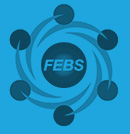
Programme features
Lecturers/organizers (all serving also as tutors and discussion leaders) and students (early career researchers: Ph.D. students, post-docs) will daily interact with each other in different organized activities as specified below. Since they all stay at the Spetses Hotel, they will have excellent opportunities for informal discussions and conversations at breakfast, lunch and coffee breaks and at the beach.
Lectures
All lecturers will divide their talk into two parts: a more general part introducing the topic and technology, a more specific part focusing on the most recent research. The total presentation time shall not exceed 30 min, leaving up to 15 min for discussions. Questions from the students will be actively encouraged by the session chairpersons, thereby avoiding that lecturers would dominate discussions. Tutorial student groups will be assigned to each lecturer with the task to prepare questions. Lecturer-student groups will individually continue to discuss specific topics related to the lecture.
Workshops
Students will choose 2 out of several topics, which will be intensely discussed during one afternoon session.
Workshop topics:
- Human genome variation and metabolic diseases (Gloyn, Kaikkonen)
- Transcription factor crosstalk in 3D chromatin (Carroll, Mandrup, Uhlenhaut)
- Translation of basic research to the clinic (Brown, Knudsen, Staels)
- NRs and the circadian clock (Lazar, Ray)
- Epigenomics and NRs in immunity (Pineda Torra, Venteclef)
- Crosstalk between metabolism and transcription via nutrient-sensing NRs (Kersten, Ricote)
- Structure and function of NR coregulators (Schwabe, Treuter)
- Epigenomics technologies and data analysis (Active Motif, Fan, Siersbaek)
Self-presentations
Each participant will introduce her/his research at the opening session at day 1 ('Elevator pitch': 1 minute, 1 slide).
Selected Short Talks by students
18 students will be selected (based on abstract quality and country of origin to have a mixed presentation) for short talks (6 min presentation + 4 min discussion) in two consecutive Thursday morning sessions. This format (all talks in one day) has the advantage that all students are treated equal (no early or late presentations) and voting becomes fairer (no short-memory bias). Two ‘best short talk awards’ will be granted upon voting by all participants (award 1) and by lecturers only (award 2).
Poster sessions
Session 1: 8 Groups of 8 students and 2 lecturers will be assembled; each student will present the poster to the group followed by discussions (total 10 min each). Session 2 and 3: odd and even numbered posters, respectively, will be presented by the students. All posters will be viewed during three consecutive days to allow individual discussions. Two “Best Poster Awards” (one from FEBS Open Bio) will be selected by a poster committee and granted at the last meeting day.
Tutorials
Each lecturer will discuss the specific lecture topic with interested students during the day of presentation, e.g. over lunch (‘lecturer table’). Students will be invited for one tutorial dinner with focus on discussing science and career development with the lecturers. 6 groups of 8-9 students and 3 lecturers.
Round table discussion
We will discuss the topics: How to publish in top journals, how to succeed as a postdoc, how to perform translational research, alternative career paths. The discussions will be moderated by Inés Pineda Torra and David Ray.





